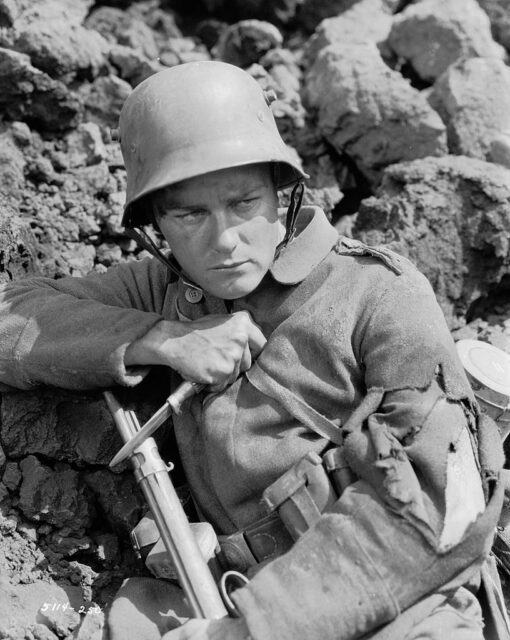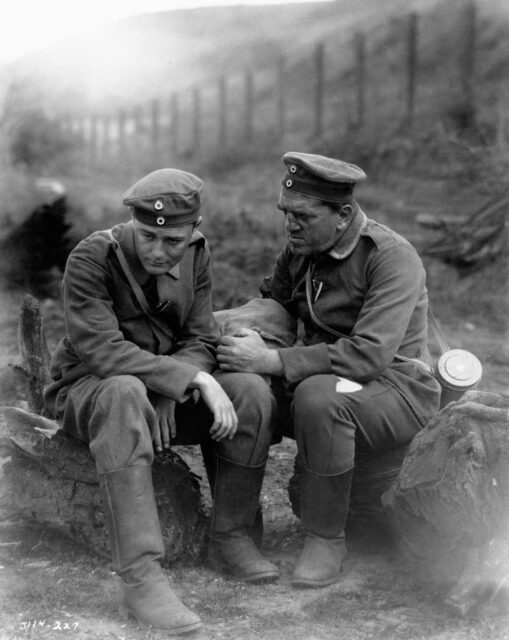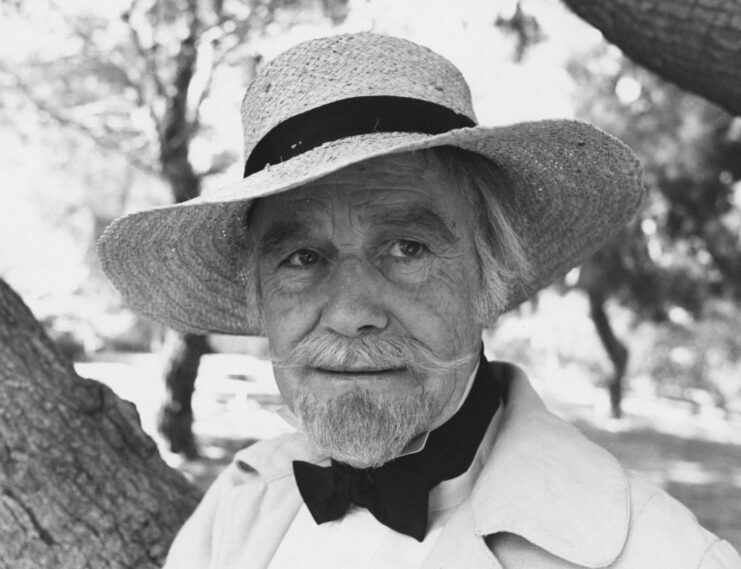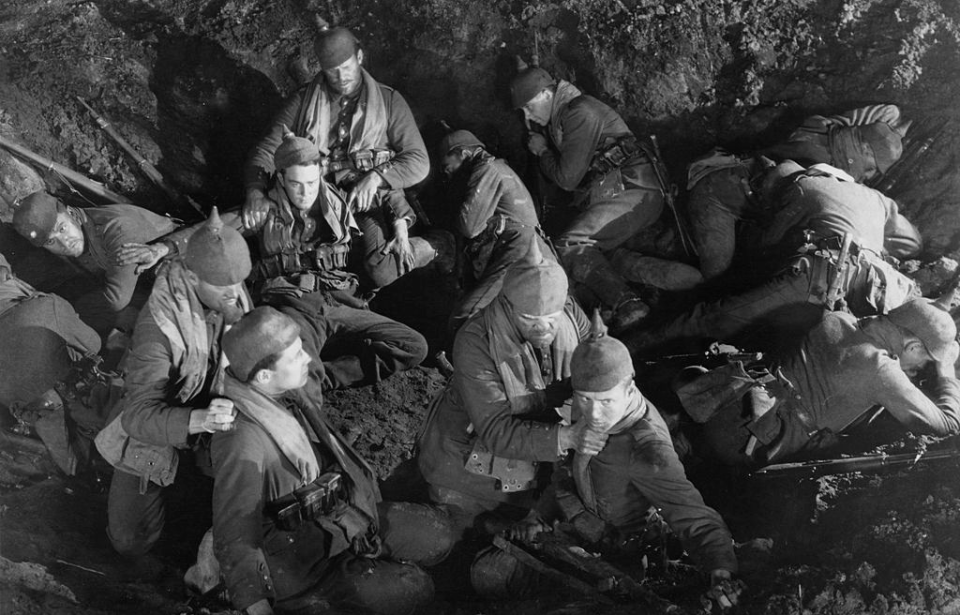The novel All Quiet on the Western Front was so popular that it was made into two separate films, both of which did extremely well with audiences. The original 1930 feature stars American actor Lew Ayres as Paul Bäumer. For a movie that’s so blatantly anti-war, it perhaps shouldn’t be surprising that the star was actually a conscientious objector who refused to fight in the Second World War.
All Quiet on the Western Front (1930)

When Lew Ayres was cast to play Paul Bäumer in All Quiet on the Western Front, he was essentially a nobody. He’d only had one role before, The Kiss (1929), which was mediocre at best.
He was so convincing as Bäumer that Ayres became one of the most popular men in Hollywood in the following years. He signed contracts with Universal, Fox Films and Paramount Pictures, with whom he produced numerous B-level films.
Ayres was considered “a household symbol across the nation, embodying everything that was good and decent and upstanding – and American.” What people didn’t know, however, was that he was a philosophical thinker, studying everything from Buddhism to Christianity. He was a vegetarian and believed that “war was the greatest sin.”
When the Second World War broke out, this evidently caused an issue.
Conscientious objector

Mandatory military conscription was enacted in the United States in 1942, and Lew Ayres soon found himself with a choice. He recalled in an interview, “I’ll always remember that form the government sent me. It had two squares: the first to mark if I would accept military combat, the second if I had objections.”
He chose to mark the second, as he “wanted to save lives, not take them.” He felt taking up arms would make him “live in a nightmare of hypocrisy,” due to his personal beliefs.
Many are quick to attribute his role in All Quiet on the Western Front to his becoming a pacifist, but he later said in an interview with the Los Angeles Times that this wasn’t the case. He elaborated that the film hadn’t influenced his position, but that “it was the first time we had ever come to understand the enemy as someone with the same lives, values, needs as ours. When any man dies you are dying a little yourself.”
Although he wanted to work as a medic, Ayres was incorrectly classified and had to work in a camp for a few months before being transferred to the Pacific, where he served as a medic and chaplain’s assistant.
Effects of Lew Ayres’ career

Lew Ayres served during the invasion of Leyte at one of the evacuation hospitals and was awarded three battle stars. Just like the others, he came ashore in an amphibious vehicle. He remembered the tension radiating among the men and decided to try and help, announcing in movie star fashion, “Frankly, I always had a double for this sort of thing.”
Not only did he work hard to save the lives of his fellow countrymen, Ayres didn’t profit from his service. He donated the entirety of his wages to the Red Cross. This was of little consequence when it came to his career. Sources say he was shunned by fans and Hollywood alike, with many theaters even refusing to show movies he featured in.
These attitudes slowly changed over the years once Ayres demonstrated he was willing to work hard as a medic, and the actor was welcomed back into the industry when the war ended.
More from us: The WWI Assault That Inspired A Movie About Sgt Alvin York
While he received one Oscar for his role in Johnny Belinda (1948), Ayres was never really hired for roles in major films. When asked about the criticism he received for his pacifism, he said, “I couldn’t get angry at a single one. Each had his own point of view and I could see it.”
